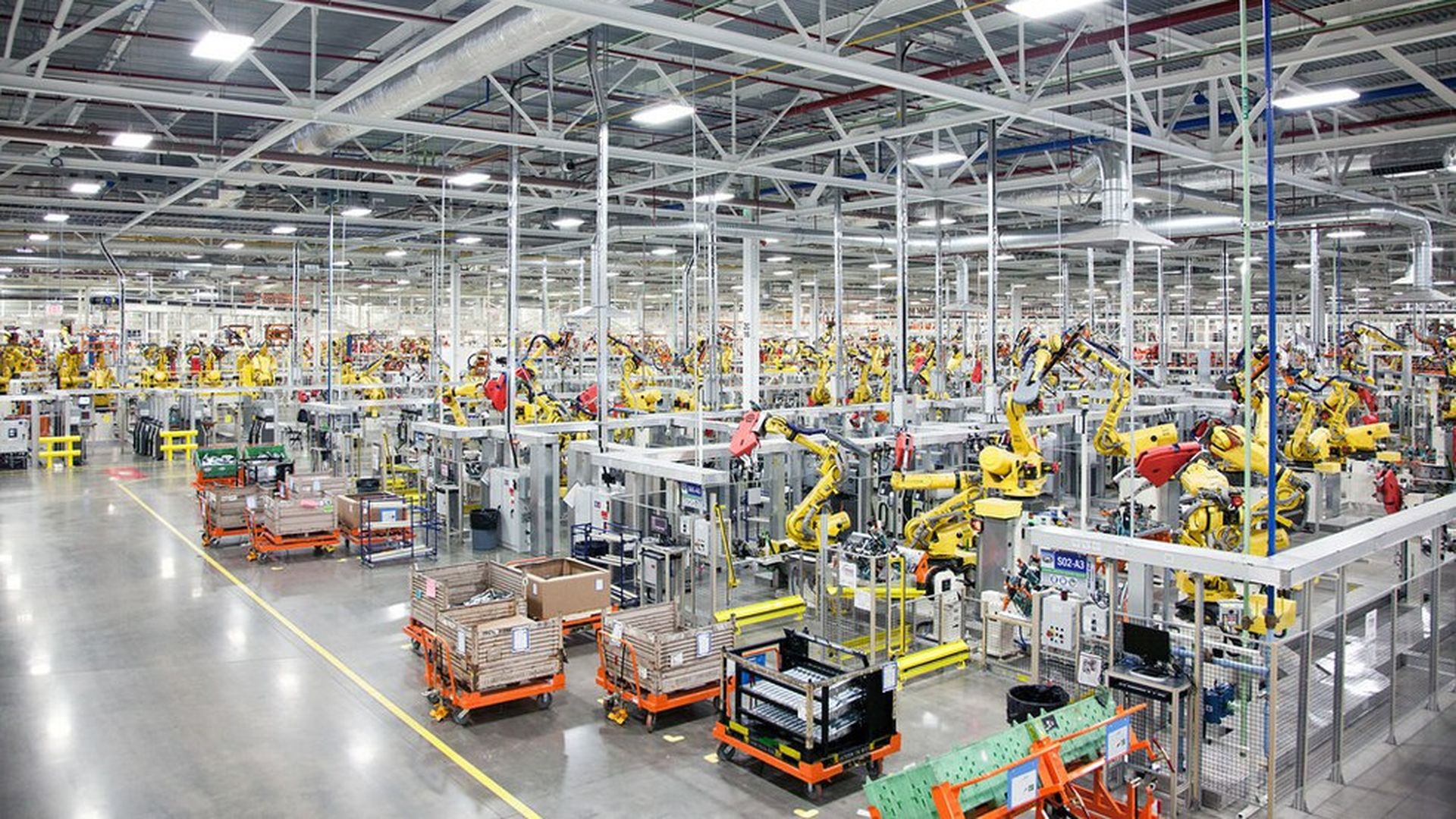There may not be enough new jobs to compensate for robots after all
Add Axios as your preferred source to
see more of our stories on Google.

Photo: Fiat Chrysler
When optimists reassure the public not to fear the new age of robotization, they say that, as has always happened since the beginning of the industrial revolution, the economy will produce more than enough jobs to replace those destroyed. But the data are delivering a blow to that argument: the U.S. economy is producing comparatively few of the companies responsible for the bulk of new jobs — young startups.
We reported yesterday that new startups are forming at the slowest rate on record, according to an analysis by the Economic Innovation Group. But the additional point, made by McKinsey, the consultant firm, is that even when they are formed, they aren't lasting very long.
Why it matters: If there is not to be the mass unemployment feared by robot pessimists in the coming decades, the economy is going to have to churn out new entrepreneurs and their businesses. But, eight years into the recovery, the engine of the economy — the green shoots of new startups — is still idle, with no sign of a turn. "The trend is not going to break by itself," McKinsey's Sree Ramaswamy tells Axios. There is no indication that the economy is about to revert into a frenzy of new startup activity.
According to the EIG data, new businesses are responsible for nearly all the net new jobs in the U.S. economy. Older companies usually shed more workers than they hire.
- Some readers came back to us yesterday with the comment that doesn't the data simply reflect the aging of the country — we are producing fewer startups because we are getting older. But, speaking with Axios, EIG's Steve Glickman notes that the opposite is true: "Forty is the prime age to start a business. Most people starting a new business are between 40 and 55."
- In fact, the trend is that startup founders are getting older and older: According to a 2015 study by the Kauffman Foundation study, 52% of startup founders were 45 to 64 in 2014, up from 38% in 1996; those 20 to 34 were a quarter of startup founders in 2014, down from about a third in 1996.
It's still not clear why the economy and demographics have so dramatically shifted, nor what to do about it.
- Most blame money — people owe too much, and the financial system is holding back more than it used to.
